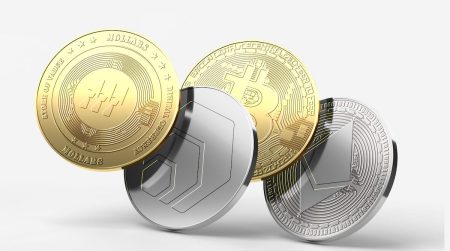South Korean debt collectors are now seizing crypto in insolvency cases – and may soon be granted even more power to confiscate coins.
Per Hanguk Kyungjae, the Korea Deposit Insurance Corporation (KDIC), a firm that operates under the Financial Services Commission (FSC), has begun “seizing cryptoassets for the first time” this year.
The KDIC typically gets involved in public and private insolvency cases.
It often intervenes when bankrupt individuals and firms declare an inability to repay depositors.
It also offers deposit insurance programs for businesses of all sizes.
The KDIC submitted data at the request of MP Kim Han-gyu, a member of the National Assembly’s Political Affairs Committee.
The data shows that the KDIC identified crypto holdings in 29 insolvency cases in the first half of 2023.
And in 16 cases, the debt collection agency “completed seizure measures,” confiscating over $7,400 worth of coins.
The move follows recent regulatory changes that allow the KDIC to request data from banks that work with domestic crypto exchanges.
In the past, the KDIC was only allowed to issue such requests to traditional financial companies, such as banks, securities operators, and insurance companies.
Firms and individuals in insolvency cases were thus able to “hide” funds by trading them for crypto and holding them in crypto exchange wallets, the media outlet explained.
As of September 2021, exchanges operating in the fiat won market were legally required to link customer wallets to real-name and social security number-verified domestic bank accounts.
This measure has effectively eliminated anonymous crypto trading on domestic platforms.
And it has also allowed agencies like the KDIC to create workarounds.
The debt collector can now ask crypto exchange partner banks to hand over account details in insolvency cases.
South Korean Debt Collectors to Gain More Crypto Powers?
The media outlet explained that the KDIC will likely gain even more power in this regard in the near future.
MPs have “proposed” a bill in the National Assembly that would grant investigators the right to demand customer data from crypto exchanges.
Lawmakers feel, the media outlet wrote, that “as methods of hiding assets become more sophisticated, the power of monitoring agencies needs to be expanded accordingly.”
The report concluded that “the quantity of cryptoassets seized” in insolvency cases was “expected to increase in the future” as KDIC officers become more experienced in crypto collection.
Critics have recently claimed that South Korea’s crypto policies are becoming ever more restrictive at a time when the nation’s biggest economic rival Japan is looking to deregulate.
Read the full article here













